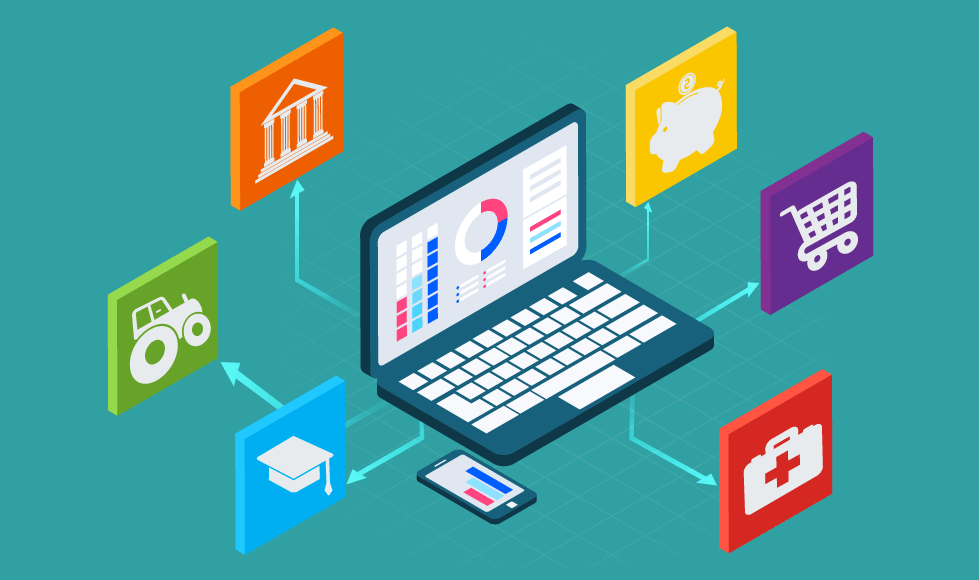How Can Small Businesses Can Digitalize their Work
There is a huge trend around digitization, digitalization, and digital transformation. Some may think that these are all different terms used for the same thing, but this is incorrect. They are in fact 3 distinct things.
Digitalization is a practice that all businesses should be considering. It is simpler than a digital transformation, but it can garner all kinds of benefits for a company. We spoke to TechQuarters, an IT support company that provides digitization, digitalization, and digital transformation services to companies all over London. They outlined the definition of digitalization, and why it is worthwhile solution for small businesses.
What is Digitalization?
To begin with, do not confuse Digitization with Digital Transformation – or Digitalization, for that matter. These three terms are all fairly interrelated and even sound quite similar, hence the confusion. For the sake of understanding, below are definitions for all three:
Digitization – this is the process of converting analog, or physical data, into a digital format. This includes scanning documents and converting them to PDFs for future use; other examples might be converting one’s signature into a digital format for online document signing. Digitization does not include the implementation of any new digital technologies, it is only concerned with information and data.
Digital Transformation – this is the process of creating a digital business. It is concerned with replacing the foundations of a business with digital solutions. Any of the top IT services companies London businesses trust, are all experienced in helping businesses digitally transform – but it is often a complicated process that has a fair amount of upfront costs. Examples of this are Cloud migrations and virtualizing servers. By implementing digital technologies from the ground up, a business can fundamentally change their approach to doing business. The use of digital technologies in this way has a range of benefits, such as integrating the different components of a business to make workflows more streamlined, and processes more efficient.
Digitalization – while the name is sometimes confused with Digitization, the definition is often confused with Digital Transformation. Digitalization is the use of digital technology to transform existing business processes. It helps a company improve upon their current processes and workflows. Unlike digital transformation, the digital technologies implemented do not replace fundamental infrastructure; they do, however, replace or improve business processes. The benefit of digitalization is that it is generally more affordable than a full digital transformation, but it opens up a lot of doors for small businesses, in terms of utilizing modern business solutions. It can also be a useful stepping stone towards a full digital transformation – for instance, some small businesses may have that as their goal, but want to start by implementing a few small solutions and see how they improve the organization.
Examples of Digitalization
As we have mentioned already, digitalization involves the implementation of digital technologies to improve upon and streamline existing workflows and processes.
Cloud Computing – a technology that has become highly ubiquitous over the past decade, the Cloud enables businesses to store data and run complex computational processes over a network, without the need for physical hardware. An example of how a company can digitalize aspects of their business through Cloud computing is with the storage and distribution of files and documents. Solutions such as Microsoft 365 are perfect examples of this – while a business that uses Microsoft 365 isn’t necessarily digitally transformed, they will still be utilizing cloud computing heavily to digitalize business tasks and processes.
Automated Workflows – this is a solution that is gaining lots of popularity among businesses. The unfortunate truth is that there are many repetitive, low-value tasks and processes that must be carried out in a business. Automation enables a company to use software and machines to automate those types of tasks, thus freeing up the time of employees to focus on high-value tasks and processes. A lot of business automation does rely on a business being digitally transformed; but equally, there are some forms of automation that can be implemented in any business, and will save employees a lot of time. One good example of workflow automation is automatic document generation – for instance, customers filling out details on a company’s website, and an invoice gets created automatically, with the customers details and order information already filled in.
Centralizing Customer Data – it is useful for a business to have multiple sources of incoming customers – in retail, for example, a company might have a physical premises, as well as a website. When a business has customers coming from different places, it can mean that customer data gets spread out. It can therefore be useful for a business to digitalize customer data collection and storage, so that all the data is centralized. Another example is Financial company’s data retention obligations. TechQuarters provides IT support for Financial Services companies all over London. One of the main solutions they help them with is digitalizing their customer data retention processes – as this is an important aspect of the sector that is bound by strict compliancy regulations.
